While many of us have different reasons that drive our fitness efforts, one common thread woven through almost everyone's endeavors is the desire to be healthy.

Health must come before performance. and NutraBio wants to help support you with products that optimize both!
Exercising, eating nutritious foods, keeping our diets in check, getting enough sleep, and various other things are only pieces of the entire picture. Sometimes, however, things can interrupt this lifestyle, and often they're out of our control.
A few such situations happen during cold seasons, or when we start to feel under the weather and must battle a bug. There's nothing fun about getting sick - it takes us out of our daily routine, makes it hard to focus or function, makes our bodies ache, and depending the severity of the illness, can be very dangerous. It's triple difficult if living with loved ones, especially young or old.
As unfortunate as these times are, you really can't avoid them. Sure, making healthy choices and staying metabolically fit helps keep our immune systems in optimal form, but getting sick every once in a while is nearly inevitable. The best we can possibly do is prepare, giving our bodies the nutrients, minerals, and mechanisms it needs to maintain an iron-like immune response that can hopefully ward off any pathogens or viruses it may come into contact with. Not only that, but if we do happen to fall ill, making the right choices can help us get back on our feet sooner!
Introducing NutraBio Immune
Seeing the potential to create an impactful supplement in the area of immune health, NutraBio CEO Mark Glazier and his team quickly jumped on the opportunity. Following the release of their incredibly powerful, novel single-ingredient product NutraBio EpiCorⓇ, the formulators at NutraBio are back with a more comprehensive immune support supplement - NutraBio Immune!
Featuring EpiCorⓇ, this label expands much further than one ingredient, compiling an assortment of some of the top, most "essential" immune-boosting ingredients available. NutraBio Immune supplies an array of health-boosting compounds and vitamins/minerals that the immune system heavily relies upon, which in turn help strengthen it as it fights off unwanted bacteria and pathogens. You also won't find cheap minerals inside - as discussed below, NutraBio is using the good stuff from Albion Minerals.
Whether it's the height of flu season or a time when something more serious is going around, getting your immune system the things it needs to fire on all cylinders is imperative - NutraBio Immune might do just that!
Before we jump into the immune-boosting power behind this timely new arrival, make sure you're all caught up with PricePlow's NutraBio news - we can help you find some great coupons on some of the best stuff in the supplement game!
NutraBio Immune – Deals and Price Drop Alerts
Get Price Alerts
No spam, no scams.
Disclosure: PricePlow relies on pricing from stores with which we have a business relationship. We work hard to keep pricing current, but you may find a better offer.
Posts are sponsored in part by the retailers and/or brands listed on this page.
NutraBio Immune Ingredients
Just as expected with any NutraBio product, Immune is fully loaded, transparently dosed, and 3rd-party lab tested. In one bottle it contains 90 capsules, and they recommend taking 3 capsules per day with meals, giving you a month's supply.
Most importantly, NutraBio only uses bioavailable forms of ingredients (especially the minerals) to make sure you're getting the best product possible. We all know that if your body cannot properly absorb the ingredients, then they will just be wasted. Immune features a robust formula that was designed to boost your internal defense mechanisms, so let's see how it accomplishes that!
-
Vitamin C (as ascorbic acid USP) - 500mg (560% DV)
As you would expect from NutraBio, Immune is stacked with several phenomenal ingredients, including EpiCor and high-end minerals!
What would an immune supplement be if it didn't get things started with a solid dose of vitamin C? This water-soluble vitamin is an absolute powerhouse, as it's used by the body to facilitate a multitude of operations. It's also found in numerous foods, which is important to note given that vitamin C is an essential vitamin, which means the body cannot produce it on its own. We need to get all of our vitamin C intake from outside sources, be it food or supplements. Based on what it can do for us, getting in enough vitamin C daily should be towards the top of your nutritional checklist!
Perhaps the most well-known application of vitamin C is as an immune-booster, a property that stems from its strong antioxidant profile. In fact, research has found that long-term, consistent vitamin C consumption can significantly raise blood antioxidant levels within the blood.[1] Having more antioxidants helps rid the body of free radicals, which are substances that can cause oxidative stress and cell damaging.[2] Keeping these at a minimum is imperative for a healthy body, let alone a well-functioning immune system!
There's plenty of research that supports this notion, as well, with vitamin C having been shown to decrease oxidative stress and fight free radicals. In fact, one particular study reached such results when conducting a test specifically in terms of exercise-induced oxidative stress,[3] which is certainly something that relates to the majority of our readers and the NutraBio "BioCrew"!
With regards to the immune system specifically, vitamin C seems to have some direct capabilities, as well. In vitro experiments conducted in 2014 found that vitamin C stimulates white blood cell production,[4] which is especially influential due to white blood cells being the body's main defense against harmful bacteria and viruses. Vitamin C has also been shown to strengthen the body's outermost protective mechanism, the skin.[5] In addition to that, this vitamin may also lower the risk of heart disease and improve nutrient absorption.[6,7]
As it turns out, that old tale proclaiming the power of a glass of orange juice when you've gotten sick may have some truth to it, although we'll argue against the sugar load during times of crisis. Vitamin C is used virtually everywhere in the body once ingested, and the influence it can have on the immune system cannot be understated. Any quest focusing on boosting immune health often begins with vitamin C, which science has shown is an absolute dynamo of a nutrient.
-
Vitamin D3 (as cholecalciferol) - 50mcg (2,000 IU) (250% DV)
Vitamin D is next in NutraBio Immune's top duo of vitamins, and its inclusion is definitely warranted - vitamin D boasts immune-boosting properties similar to vitamin C, as well as a few additional characteristics that separate it as its own crucial entity. Most people initially hear of vitamin D in conversations about the sun, as the vitamin is arguably most known for its existence as a byproduct of sunlight exposure (realize that vitamin D is really a hormone generated from the sun!). Yet times of illness often coincide with times of low sunlight - wintertime!
So yes, the body does form vitamin D when it gets solid amounts of sun, but the real magic in this vitamin is what happens once it's available for use!
-
Immune-booster....
Multiple studies have linked vitamin D supplementation with potential immune-boosting effects. One such study, published in 2010, tested the effects vitamin D had in relation with influenza in Japanese school children. In this randomized, double-blind, placebo-controlled procedure, those in the vitamin D group took a total of 1200IU of the vitamin daily for 30 days. Scientists ultimately found that those receiving the vitamin saw a 40% reduced chance of catching the virus, compared to placebo.[8]
Respiratory health in the face of Vitamin D Deficiency: A must-read meta analysis
Perhaps more interesting, however is a recent meta-analysis from 2017. Looking at 25 randomized controlled trials, researchers concluded that vitamin D supplementation could be a viable option in warding off respiratory tract infections,[9] especially in those deficient in vitamin D.
This has led scientists to hypothesize that vitamin D deficiency could put people at elevated risk of other respiratory diseases and viruses. Additional studies have also reached similar conclusions, finding that vitamin D can potentially reduce the risk of other ailments such as heart disease and multiple sclerosis.[10,11] By simply keeping vitamin D levels where they should be, and taking the necessary health precautions, one can up their chances of fighting off catching something nasty!
-
...and a mood-booster!
That's not all this vitamin does, either - research has shown that vitamin D may be able to improve your mood, too! A study from 2008 found that in depressed individuals, prolonged vitamin D supplementation significantly improved their mood and levels of depression compared to placebo.[12] Given that your overall mood and mental state can have a direct impact on your immune system,[13] this dual effect of vitamin D makes a lot of sense!
NutraBio is doing everything they can to help out during difficult times! They made an exclusive product for First Responders.
It's also important to note that NutraBio went with vitamin D3 here. While there are two major types of vitamin D (D2 and D3), vitamin D3 is the form that comes from animal-based sources, such as eggs and fish oil, and is also the form that the body manufactures within the skin when exposed to sunlight. Though both forms of vitamin D are entirely fine, vitamin D3 is often used in studies and is also somewhat more natural to the body. NutraBio consistently sides with science, and this choice is representative of that!
The importance of vitamin D is quite substantial when you consider its direct relationship with the immune system and your mental health, but its significance becomes even more important in times when illnesses seem to be at their strongest. When you're sick, you're likely staying inside a bit more and not getting as much sun - this is also true in the winter months, when things like fevers and the flu are most rampant. The body needs the sun to produce enough vitamin D, so if you're someone who spends a good chunk of the day inside, supplementing here is likely a wise choice. With a solid dose of this fat-soluble vitamin, as well as other incredible immune-supporting ingredients we'll soon get to, choosing NutraBio Immune as that supplement may be a great decision!
-
-
Zinc (as Albion zinc bisglycinate chelate [TRAACS]) - 50mg (450% DV)
With two crucially essential vitamins covered, NutraBio Immune now ventures over into the minerals and micronutrients sphere for additional benefits, beginning with its inclusion of zinc. The second-most abundant trace mineral within the body,[14] zinc is yet another substance the body craves, as it leaves its imprints almost everywhere. If you're guessing that immune support would be one of its main functions, you'd be right!
NutraBio Sticks to the ingredients that work. That includes the chelated minerals, and pictured above, the better form of Vitamin B6 in their MultiSport multivitamin series.
T cells are a type of white blood cell that grow from stem cells housed within bone marrow.[15] These cells are incredibly important to the immune system, as they help maintain its overall integrity and fight off various diseases. Thus, increasing the production of these cells can have a massive impact on the strength of the immune system. Well, research from 2010 found a way to do that - conducting in vitro experiments, these scientists found that zinc promoted proliferation of T cells.[16] In other words, zinc actively builds up immune response by facilitating the growth of one of its key contributors!
This T cell-promoting effect was put to the test in further studies, with scientists looking for more tangible results as a product of this relationship. In 2017, researchers administered lozenges to 575 individuals with the common cold. In 7 randomized, placebo-controlled trials, subjects were either given the zinc lozenges or a placebo, with the zinc group totaling approximately 80-200mg of the mineral daily, depending on the trial.[17] They found that the average time the zinc group had the common cold was 33% lower than the placebo group, with little difference between the lower and higher dosage trials. By simply making zinc a part of their recovery routine, these individuals were able to shake off their cold and get back on their feet sooner!
Using Albion's Chelated Minerals
Albion Minerals is a leader in developing highly bioavailable forms of minerals to use in various supplements.
One thing NutraBio is very adamant about is using high bioavailability minerals. Similar for their Multi-Sport multivitamins, they use Albion's TRAACS minerals, which stands for "The Real Amino Acid Chelate System".
It's well known that minerals on their own are not well-absorbed in the small intestine. But guess what is well-absorbed: amino acids! So when you take amino acids such as glycine and bind them to the minerals, your small intestine is far more willing to pull it in - and that's exactly what happens! Consider this a "Trojan Horse" effect of getting more zinc in, as opposed to cheaper forms like zinc oxide.
The same situation occurs for the other minerals listed below.
As for some other areas affected by proper zinc consumption, there are a few that are rather interesting despite not being directly related to the immune system:
- Improves blood glucose response - a meta-review from 2012, in analyzing 25 studies that tested zinc on individuals with diabetes, found that the mineral significantly improved blood sugar regulation.[18] It also turns out that metabolic health is incredibly connected to immune health!
- Boosts heart health - a meta-analysis from 2015 found that zinc can enhance blood lipid parameters, specifically through reducing total cholesterol and LDL cholesterol levels.[19] High levels of these markers are generally linked to heart disease, so in helping to keep them in check, zinc is working keep the ticker healthy and happy!
Given all of these capabilities, zinc can be an incredibly useful mineral in terms of promoting overall health, when taken in tolerable amounts. Some studies have seen adverse effects such as nausea and flu-like symptoms in individuals taking the mineral in excess of 40mg per day.[20,21] By simply incorporating zinc into your diet responsibly, though, you can reap the benefits while hopefully avoiding potential issues!
-
Selenium (as Albion selenium glycinate) - 200mcg (360% DV)
Selenium, like zinc, is an essential mineral - the body can't make it on its own, though it needs it to properly function. However, we don't need as much selenium as we do zinc, meaning that it's a bit easier to meet daily requirements through diet. That doesn't mean that this mineral is something you can simply gloss over, though!
Most typically praised for its work as an antioxidant,[22] selenium has a rather large effect on the immune system that often goes unnoticed. A review from 2013 perhaps summarizes these effects best, noting that selenium improves immune function through the promotion of T cell growth.[23] Research has seen positive correlation between selenium levels and the ability to fight viral and nonviral infections,[23] though to varying degrees that seem to be dependent on the specific pathogen in question.
Additional research has suggested that selenium may lower the risk of developing certain types of cancers, though the exact mechanisms remain somewhat unclear.[23] Despite not completely understanding the underlying mechanics at play, it's hard to deny the positive relationship selenium has with the immune system!
In addition to that, selenium is also vital to thyroid health. The thyroid is a gland within the body that is responsible for regulating the metabolism and hormones, among other things. Interestingly, selenium has been shown to be effective for treating a condition that relates the thyroid and the immune system - Hashimoto's disease. Hashimoto's is a condition in which the immune system attacks the thyroid, causing a mess of issues.[24] Research has found that selenium supplementation can improve thyroid functioning, mood, and overall health in individuals with conditions such as Hashimoto's.[24] Though more research is needed in this specific regard, the requirement of selenium for a well-running thyroid is undeniable, whether one has a pre-existing condition or not!
That being said, it's important that one keeps their overall selenium intake within reason. The recommended range of daily intake is within 55mcg to 400mcg,[25] with some severe toxicity being reported in those who well exceed that range.[26]
Worry not, however, as NutraBio knows what they're doing with the dose of selenium in this supplement. They're providing just enough to give you some help in reaching a safe daily amount, providing a head start towards a healthy immune system and a smoothly-operating thyroid!
-
Copper (as Albion copper bisglycinate chelate [TRAACS]) - 3mg (330% DV)
Rounding out NutraBio Immune's complex of essential minerals is copper. This metal is only needed in trace amounts in order to get its job done, but make no mistake, that doesn't make it any less important!
Copper deviates from the path that both zinc and selenium seem to follow in terms of cell proliferation - while those two minerals support white blood cell production, copper helps facilitate red blood cell production. In addition to that, copper supports iron, another essential mineral, in the production of hemoglobin, a protein that helps red blood cells move oxygen throughout the body.[27]
However, there is some research that suggests copper may actually have effects similar to zinc and selenium - copper has been shown to restore proper T cell counts in copper-deficient mice,[28] suggesting a potential link between copper deficiency and immune response. While these findings have yet to be seen in human research, the potential is noteworthy in and of itself, especially considering the presence of zinc and selenium on this label. At the least, copper supports those two minerals, while also bringing some more unique benefits to the table!
-
N-Acetyl-L-Cysteine (NAC) (HPLC) - 600mg
We've talked an awful lot about antioxidants thus far (spoiler alert: we aren't done yet!), but this next ingredient brings us to perhaps the most powerful one of them all!
N-acetyl-L-cysteine (NAC) is a form of the semi-essential amino acid cysteine, which is often found in various meats, dairy products, and seeds. NAC is the supplemental form, making this important amino available to us outside of our direct diets. Based on what it can do, we are glad we're able to get our hands on additional cysteine via NAC!
The primary use of NAC as a supplement is to increase antioxidant production within the body, specifically the antioxidant glutathione, arguably the most powerful antioxidant out there. Glutathione has been shown to support immune health, fight oxidative stress, and reduce cellular damage, with some research even linking it to longevity, as well.[29,30]
In fact, most of the benefits tied to NAC relate to its ability to increase glutathione. Research showing that NAC supplementation can improve brain health,[31] slow cognitive decline,[31] and enhance dopamine levels credit such effects to increased levels of glutathione.[31]
Direct immune health impact
Looking for a better way to recover from drinking. We've found that NAC (N-Acetyl Cysteine) taken both before and after alcohol improves hangover status tremendously. Why? It increases glutathione production. See NutraBio NAC on PricePlow.
That's not it, either - there is also evidence to suggest direct interactions between NAC and the immune system, thanks to glutathione. Research from 2000 found that NAC increased all immunological functions, as well as complete restoration in NK cells in patients with human immunodeficiency virus (HIV).[32]
Additional studies using similar test group demographics support these findings, even seeing enhanced T cell production as result of NAC supplementation.[33,34] Though this a rather specific application, and more broad human studies are certainly warranted, this link is encouraging enough!
One such "broad" study has shown promise - an in vitro study from 2010 suggested that NAC could dampen the ability of viruses to replicate after seeing such an effect in tests using the influenza virus.[35] Again, the promise is there, and it's exciting enough to warrant NAC's inclusion on this label.
With such wide-ranging capabilities, it's no wonder the formulators at NutraBio wanted to throw NAC into this product. It provides an excellent way to increase glutathione production, which science has suggested is incredibly important to keeping healthy. It's effects are felt in more places than just the immune system, making it something we're very happy to get here!
-
EpiCorⓇ (dried yeast fermentate) (from saccharomyces cerevisiae) - 500mg
With some of the more common, albeit vital, ingredients now covered, we can get into what truly separates NutraBio Immune from the competition!
EpiCorⓇ, according to its formulators at Embria Health Sciences, is a "natural dietary supplement ingredient that's been shown to help strengthen the immune system by balancing immune response."[36] This all-natural, novel ingredient is made from a yeast called saccharomyces cerevisiae that contains a complex of polyphenols, vitamins, beta-glucans, and other constituents that help regulate immune health.[37]
If you want to test it alone, it's available as a standalone ingredient in the new NutraBio EpiCor supplement, but if you have the budget and it fits your multivitamin profile, we're obviously a bit more excited about the more well-rounded NutraBio Immune here! You don't need both. Now let's get into the ingredient itself:
How EpiCorⓇ gets the job done
EpiCorⓇ has four main effects on the immune system, helping to support both "levels" of the immune system - the surface-oriented level that involves the skin, as well as the component that involves the white blood cells!
-
Upregulates Immunoglobulin A secretion
Immunoglobulin A (SIgA), which lines membranes located within the respiratory tract and stomach, helps the body detect the difference between "good" bacteria and "harmful" bacteria.[39] It works as a "tollgate" of sorts, intercepting any potentially harmful pathogens and preventing their entrance into our system.EpiCorⓇ has been shown to increase the production of SIgA following acute consumption.[40,41] This translates to a strengthened defense within the respiratory tract and stomach, which with more SIgA, has more resources to trap and subdue harmful bacteria before it can wreak havoc. This front-line activation doesn't make SIgA infallible, however - the mucus may still let some things slip through, but the effects of EpiCorⓇ actually carry through to secondary lines of defense, too!
-
Enhances NK cell activity
Research has shown that EpiCorⓇ can increase natural killer (NK) cell activity.[40] NK cells are a type of white blood cell that are incredibly effective at detecting and eliminating "bad" cells from the system,[42] and are often called on first when something slips past SIgA. They work to step in before a virus or bacteria can multiply, trying to fix the issue before the body is forced to call on the rest of its defenses.
-
Amplifies antioxidants
As it turns out, EpiCorⓇ has a synergistic relationship with most of the ingredients on this label - sure, it has similar immune-boosting abilities, but it actually compounds upon the antioxidant power of the other things at work in this formula.
Though EpiCorⓇ is not an antioxidant, it has displayed an ability to increase the effectiveness of antioxidants in research![40,41] Considering that virtually every other ingredient here has some sort of antioxidant capability, the presence of EpiCorⓇ actually enhances their ability to get rid of free radicals within the body. This increases the likelihood that cells will maintain their integrity, remaining stable enough to fight off any pathogens that may be circulating!
-
And lastly, overall gut health support!
Digestional health, more colloquially referred to as "gut health", has been a trendy topic within health circles as of late. Humans are finally just starting to understand the complex array of links gut health has to other areas of health, seeing that a healthy digestive tract often promotes health elsewhere (for example, a healthy gut is linked to improved mood). This relationship exists in regards to the immune system, as well, which makes sense - if the body doesn't have to worry about something gone astray in the stomach, it can focus its efforts elsewhere.
Research suggests that EpiCorⓇ may be able to affect both of these areas simultaneously. While we've already discussed the immunity side of this awesome ingredient, additional studies have observed its function as a prebiotic, increasing healthy gut bacteria within the stomach as well as gut barrier strength.[43,44] With a healthier, stronger gut, the body is in a better position to fight off any unwanted bacteria that may enter the system!EpiCorⓇ is relatively new to the industry, but its arrival into the mainstream side of things is actually thanks to NutraBio - they've recently released EpiCorⓇ as a standalone supplement. We were pretty impressed with this ingredient as an immune-booster on its own, let alone as part of a larger formula designed to do the same. In addition to bringing added benefit, it also enhances the rest of this label, taking things up a notch.We've given a pretty good overview of this intriguing ingredient here, but for a more in-depth look, be sure to check out our feature article about NutraBio's standalone product, NutraBio EpiCorⓇ!
-
-
Ginger Root Standardized Extract (Zingiber officinale) (5% gingerols) - 300mg
Next on the list is 300mg of ginger root extract standardized to contain at least 5% gingerols. You may think ginger is just used for cooking, but when taken at a high enough dose, it can have some profound health benefits!
Another supplement that has ginger inside? The anti-inflammatory supplement, NutraBio Curcumin Advanced!
Ginger, also referred to as Zingiber officinale, belongs to the Zingiberaceae family and is native to South-East Asia.[45] Besides being utilized to enhance the flavor of foods, the rhizome constituent of ginger has traditionally been used for a variety of medicinal purposes due to its antimicrobial, anti-bacterial, anti-inflammatory, and antioxidant properties.[45,46] Research suggests that ginger can be useful for testing several medical conditions, such as infectious diseases, heat disease, cardiovascular, disorders, gastrointestinal distress, diabetes, degenerative disorders, and cancer.[45]
The positive effects of ginger are primarily attributed to its bioactive components, which include gingerols, parodols, zingerone, and shogaols.[46,47] It's well established that because of ginger's potent antioxidant effects, it can help boost the body's internal defense mechanisms by scavenging against excessive free radical production.[45] Free radicals get produced within the body due to various biological processes, but if levels get too high, they can wreak havoc on healthy cells. This may leave your body in an immunocompromised state, which is a perfect storm for getting sick.
Furthermore, it's great to see that this particular ginger extract is standardized to 5% gingerol, since that bioactive compound is more involved in antimicrobial and antibacterial effects.[46] Overall Ginger is a health boosting powerhouse, and its benefits go beyond making your food taste a little better.
-
Grape Seed Standardized Extract (Vitis vinifera L.) (95% polyphenols) - 100mg
Grape seed extract is an ingredient we tend to see across different product families within the industry, from pre-workouts to post-cycle therapy formulas to, of course, multivitamins and immune-boosters! Why? One word - antioxidants!
Check out our NutraBio Epicor post to see what makes EpiCor so powerful!
Known in the scientific community as Vitis vinifera, grape seed extract is jam-packed (no pun intended) with antioxidants, specifically proanthocyanidins.[48] These compounds have been shown to be incredibly powerful in research, with scientists finding a multitude of potential benefits. In addition to the free radical-fighting ability synonymous with antioxidants, research has found that proanthocyanidins display vasodilating, anti-inflammatory, anti-bacterial, anti-viral, and immuno-protective properties.[49] In addition to all of that, there's also research that suggests potential use as a hormonal balancing agent,[50] an additional property that only adds to the broad range of applications proanthocyanidins seem to have!
Though they boast such an array of uses, the real reason NutraBio decided to include a substantial amount of proanthocyanidins in this formula is quite clear. The overall effect these antioxidants can have on one's overall health wide-spanning, as they help support numerous components that add up to a healthy, well-running body.
With an opportunity to further elevate NutraBio Immune by including proanthocyanidins, the formulators over at NutraBio did what they do best - they found perhaps the best available source of them! In 2017, researchers used a very complex deviation of high pressure liquid chromatography (HPLC) to analyze the overall proanthocyanidin content of grape seed extract. They found proanthocyanidins to be the largest-represented group of constituents within the substance,[48] thus deeming the extract to be an excellent source of antioxidant, immune-boosting power!
Supportive, not preventive!
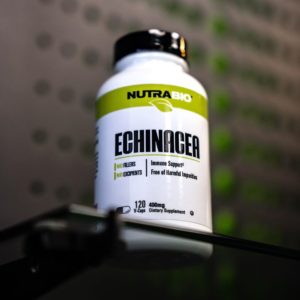
NutraBio's Echinacea is a great supplement to stack with NutraBio Immune!
One potential misunderstanding we must address here is that NutraBio Immune does not necessarily prevent catching a cold, the flu, or other illnesses. These things are often out of our control, and the best we can do is to simply prepare - this means making healthy decisions such as eating nutritiously, sleeping well, reducing stress, exercising, among other things. If these are all things you are practicing daily, then you're doing just about everything you can to support a healthy immune system and well-functioning body.
Getting in an adequate amount of vitamins and minerals can surely help strengthen the immune system, and though NutraBio supplies a number of ingredients that do just that in this supplement, it by no means yields an infallible immune system. Supporting it is the best you can likely do, but that's not a bad thing! Why wouldn't you want to maximize the strength of your immune system, which in turn, can help minimize the chance of catching the seasonal "bug"?
Stacking considerations
This supplement takes care of quite a bit. We'll always harp on metabolic health, which includes doing what it takes to keep body weight and body fat in normal range, insulin and blood glucose levels low, and blood pressure in a safe range.
But one solid immune-boosting ingredient you could consider adding is NutraBio's Echinacea, to provide a bit more "herbal" support in boosting the immune system.
Conclusion: Raise your defenses with NutraBio Immune!
Though NutraBio has their hands all over the supplement industry, they have set their sights on immune support supplements for the time being. It was slated for this fall, but "things happened", accelerating this launch. Given the time in which this product is hitting the market, it makes total sense - the world finds itself in an unprecedented situation, and doing everything we can to keep ourselves and our neighbors healthy is of paramount importance. That checklist of things begins with the obvious - washing hands, keeping distances, staying at home if you get sick - but there are certainly other things you can do to try and stay healthy - including not being nutrient or mineral deficient!
Our immune systems are, as most bodily systems are, incredibly complex. They're also intrinsically linked, which ultimately provides us a multitude of ways we can effectively enhance them, as well as potentially weaken them. The best we can do is make smart choices, fuel them with nutrients they need, and do other things that support immune health. This is true in all environments, regardless of the virus or "bug" going around at the time.
In NutraBio Immune, NutraBio is supplying a concoction that packs multiple compounds vital to staying healthy. This product has just about everything you could be looking for in an immune support supplement, from antioxidant power to white blood cell-promoting effects. While it certainly isn't exactly "what the doctor ordered", per say, it's about as close as you'll get in the supplement industry!
NutraBio Immune – Deals and Price Drop Alerts
Get Price Alerts
No spam, no scams.
Disclosure: PricePlow relies on pricing from stores with which we have a business relationship. We work hard to keep pricing current, but you may find a better offer.
Posts are sponsored in part by the retailers and/or brands listed on this page.
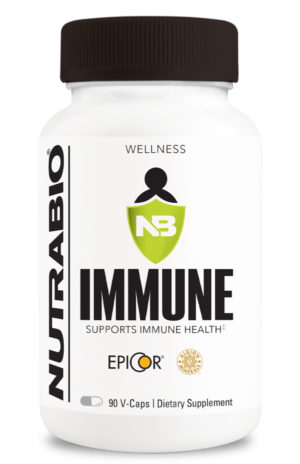
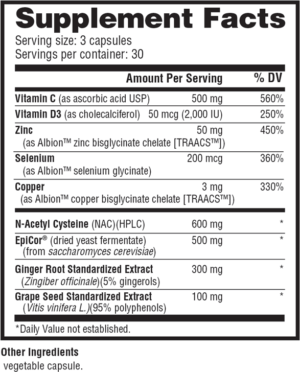
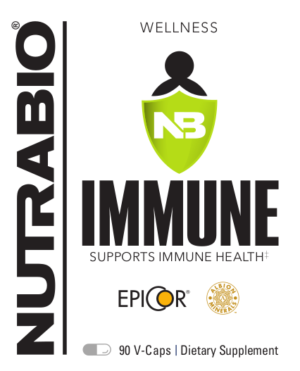

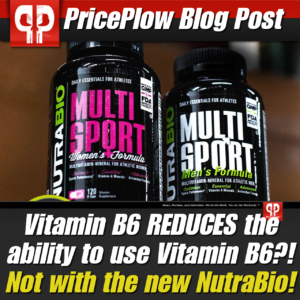

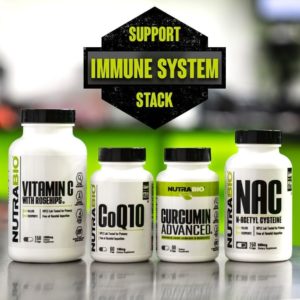
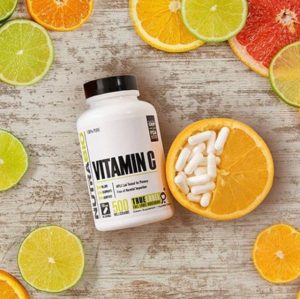
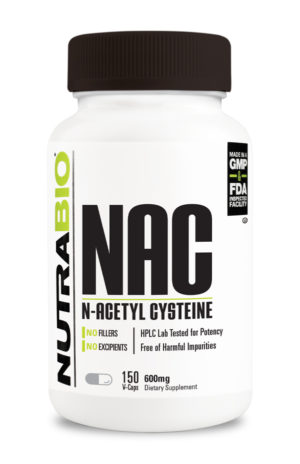
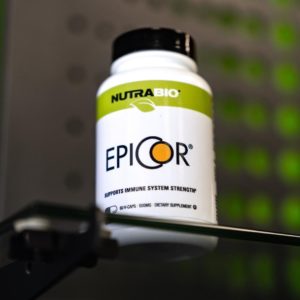
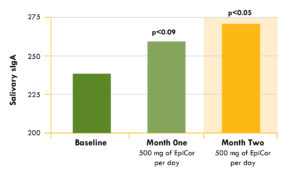
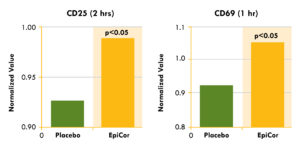
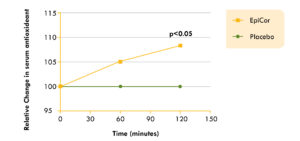
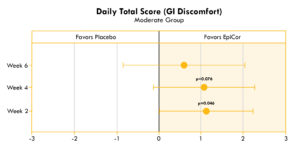
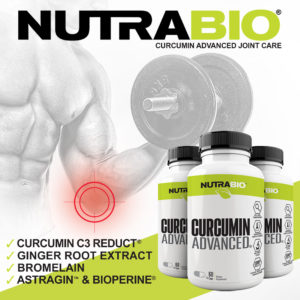
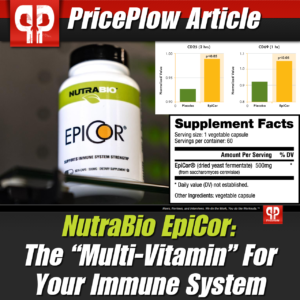
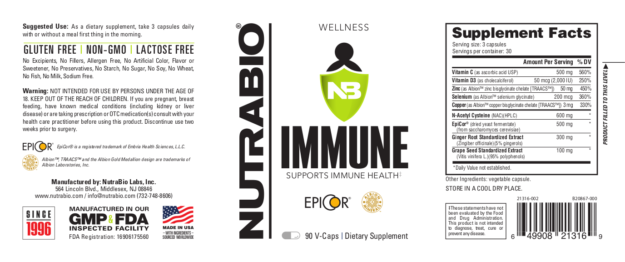


Comments and Discussion (Powered by the PricePlow Forum)